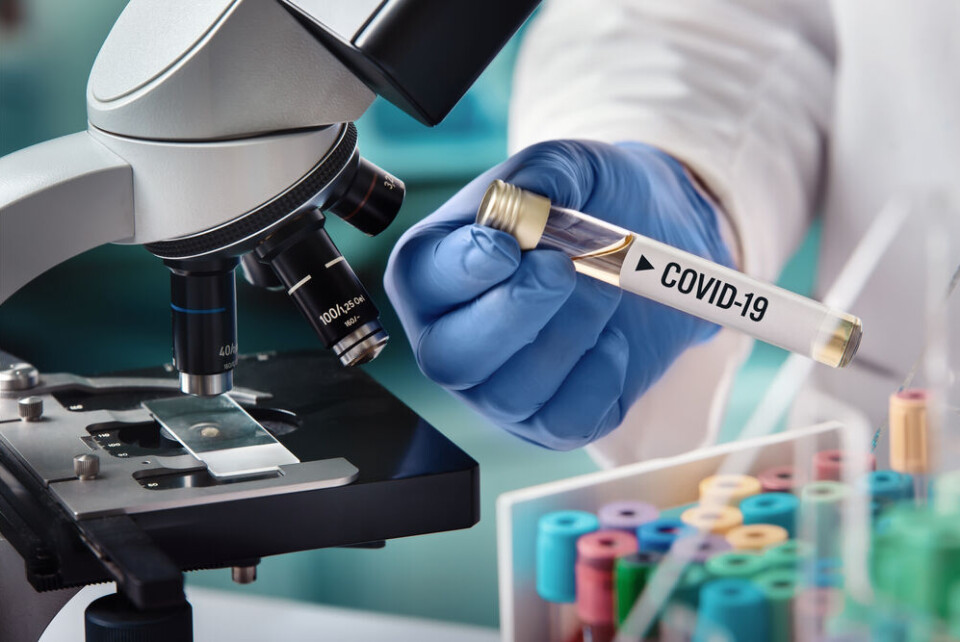-
French Prime Minister confirms use of Article 49.3 to pass budget
Usage opens government up to motion of no confidence but opposition MPs unlikely to find enough support
-
Floor collapses in Paris building leaving 20 injured
Water leaking into the building from balcony is thought to be cause of collapse
-
Homes evacuated and cars submerged as flash floods hit south of France
Alerts continue as schools and roads are closed. Several rivers have burst their banks
French study: 20% severe Covid patients have genetic or immune issue
Two new studies by researchers in France show that one in five people with severe forms of Covid has a genetic issue that stops their cells from fighting against the virus

Almost a quarter of people who suffer severe forms of Covid-19 have a genetic or immune anomaly, a major Paris hospital group has said, citing two new French studies.
In a statement, the Assistance publique – Hôpitaux de Paris (AP-HP) highlighted two new studies on the subject. Both were published in scientific journal Science Immunology.
They are the result of international collaboration, including researchers from national medical institute l’Institut national de la santé et de la recherche médicale (Inserm), the University of Paris, and the human genetics lab of infectious diseases at the AP-HP.
‘Genetic abnormality’
In the first study, researchers focused on men, as they are more likely to suffer from severe forms of Covid. Researchers sequenced the X chromosome of 1,202 male patients who had had a severe form of the virus.
Of these, 16 patients were found to have a genetic variation on the TLR7 gene, dubbed a “loss of function”, which led to the development of severe forms of the virus.
This is because this gene “plays a major role in the production and mechanism of IFN 1”, which is a protein that is produced in response to a viral threat, and which “inhibits the replication of the virus in infected cells”, the AP-HP said.
It summarised: “The 16 patients who presented a deficit in IFN 1 stopped their cells from being able to fight against the SARS-CoV-2 infection, which explains the severe forms.”
The study recruited patients from all over the world, “involving 400 research centres in 38 different countries” the hospital group said, which enabled researchers to gather a representative sample of people and avoid excess ethnicity bias.
This means that the results can be used to make predictions and conclusions about the general population.
Overall, the study concluded: “It appears that 1.3% of several forms of Covid-19 can be explained by a genetic abnormality of the TLR7 gene in men. This deficit is more frequent (1.8%) in patients under 60.”
Less resistance to severe forms over age 65
The second study showed that 15-20% of severe forms of Covid are due to the patient’s blood having antibodies that “specifically target the IFN 1”.
The study looked at 3,595 patients who had had a severe form of Covid, 1,639 who had an asymptomatic form, and 34,159 people in good health. The participants were from 38 different countries.
In its statement, AP-HP said: “They showed that these antibodies block the protecting effects of IFN 1 on the virus replication. The SARS-CoV-2 virus penetrates into the cells without meeting any resistance and replicates uncontrollably.”
The study also showed that these antibodies against IFN 1 increase with age. They are very rare before the age of 65 (0.2-0.5%), and increase exponentially as you age, reaching 4% between the ages of 70-79, and 7% between the ages of 80-85.
Researchers do not yet know why this is, but the study does partly help to explain why age is a risk factor in the development of severe forms of Covid.
France is still recording relatively high numbers of cases of the virus, and of hospital admissions.
The most recent figures – to August 21 – from Santé publique France show that there were 22,636 confirmed cases in the previous 24 hours, and 81 deaths. There were 6,008 new hospitalisations in the past seven days, and 1,316 critical care admissions in the same time, including 969 into intensive care units.
Related stories
Record 6million Covid tests taken in France after health pass extended
200 anti-health pass protests to take place in France this Saturday
France hits 40 million goal for full vaccinations against Covid-19
























